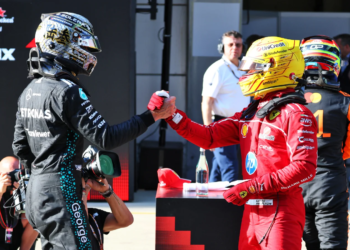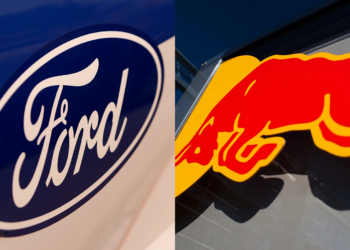Alex Albon has attributed Williams’ fluctuating form across the Mexico City Grand Prix weekend to the FW45’s sensitivity to higher temperatures.
Albon drove from 14th on the grid to a ninth-place finish on Sunday, but his performances during free practice had indicated higher hopes for the Anglo-Thai driver.
Right off the bat, Albon was second fastest in the opening practice session, only 0.095s off the pace of eventual race winner Max Verstappen.
The gap to Verstappen narrowed in FP3 down to 0.07s, but the Williams driver was unable to extract the same performance when it came to sessions later in the day.
The struggles became particularly evident on Friday during FP2 when he fell down the order to 14th. During qualifying, he would have advanced to Q3 if it were not for a track limits infringement in Q2, yet he was left “more frustrated” with the drop in performance over his lap deletion.
“I was surprised, the pace today was not that strong,” he said after racing his way back into the top ten. “It was okay, better than qualifying but still not that great.
“I think a lot of that comes down to temperature. The track was hot and just like qualifying and FP2, we struggle when the track gets hot so there was a lot of management in the race.
“I was having to manage too much to make the tyres last and that was affecting the lap time.”

Sunday’s race saw track temperatures reach a blistering 52 degrees Celsius, falling to 45 degrees later in the race. For comparison, Saturday saw temperatures of 44 degrees for FP3, but an increase to 47 degrees for the afternoon’s qualifying session.
“Purely [we struggled with] the tyres and the temperature,” he added.
“We know we have quite a sensitive car. We slide around a little bit more than others so when it gets hot, it creates a bit more temperature and it was the same in the race.”
Despite that, Albon felt that race performance was better than expected as competitors all struggled to cope with the challenges of cooling at the high-altitude Autodromo Hermanos Rodriguez.
“The race was a bit easier because everyone is managing,” he explained. “Obviously in a short run if you’re managing you’re just going to be slow. We had the same problems as qualifying but we made it work.”
Albon’s race strategy was compromised by the timing of a red flag on Lap 35, but he utilised the starts to make up places that he predicted would have been impossible otherwise.
“What was important was the starts,” he noted. “We had two very good starts and I think that was the secret for points.
“I don’t think if we weren’t able to get past at the starts we would be able to get points so I’m very happy.”










Discussion about this post